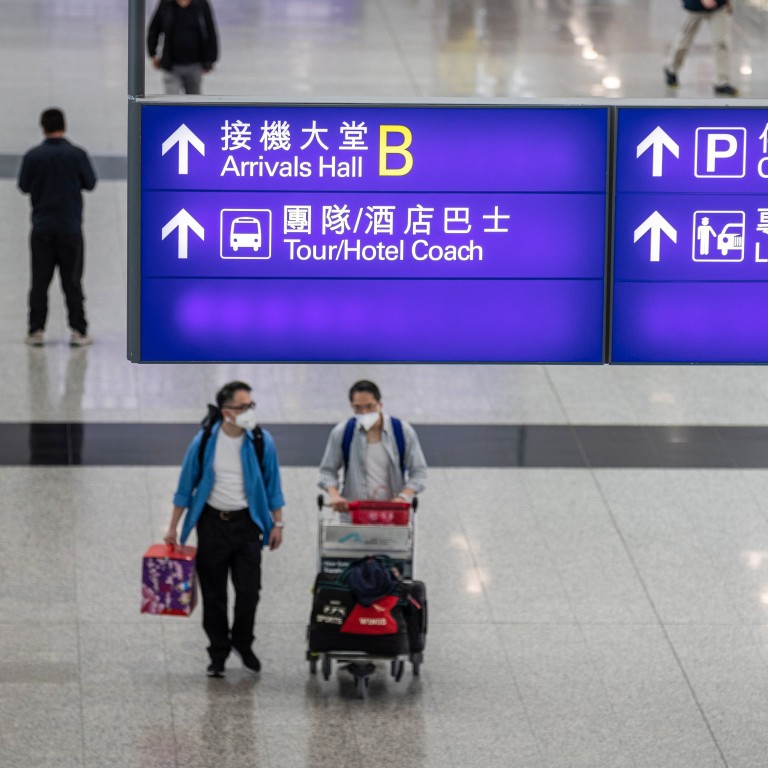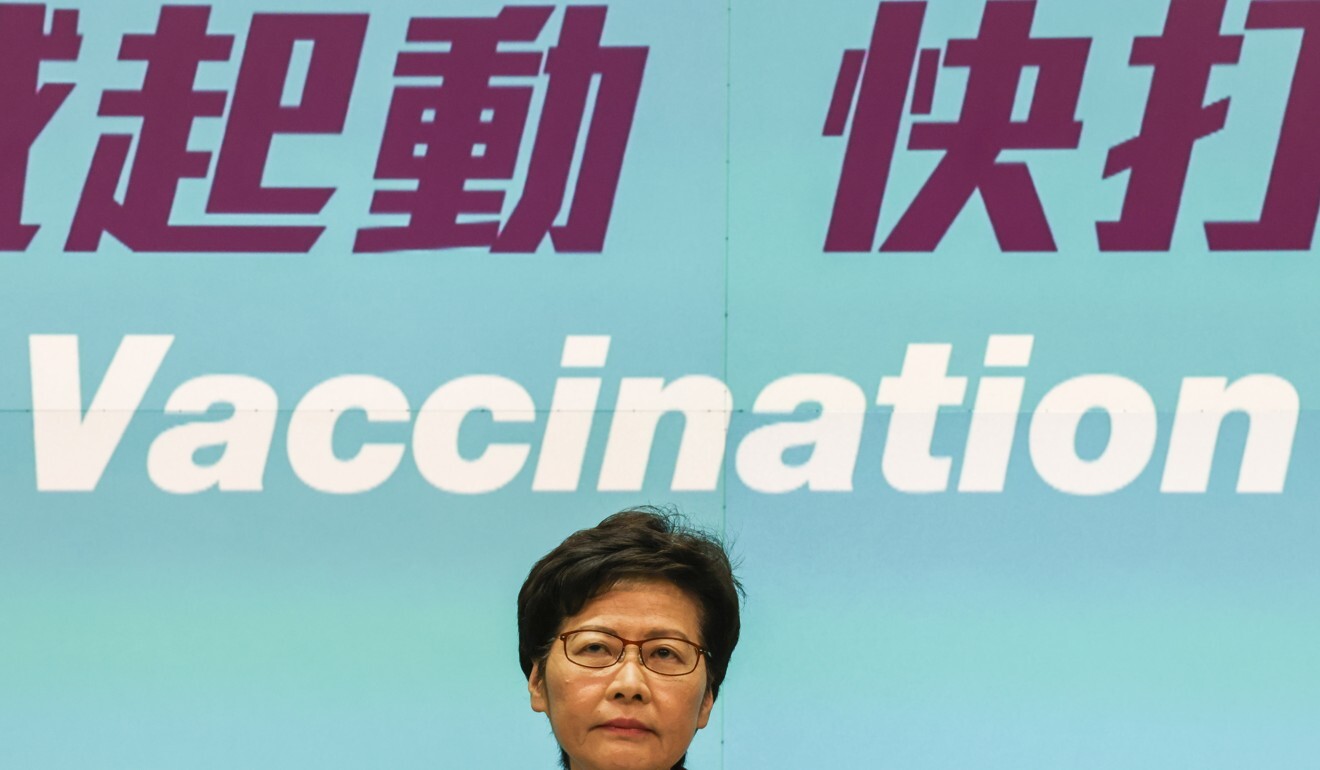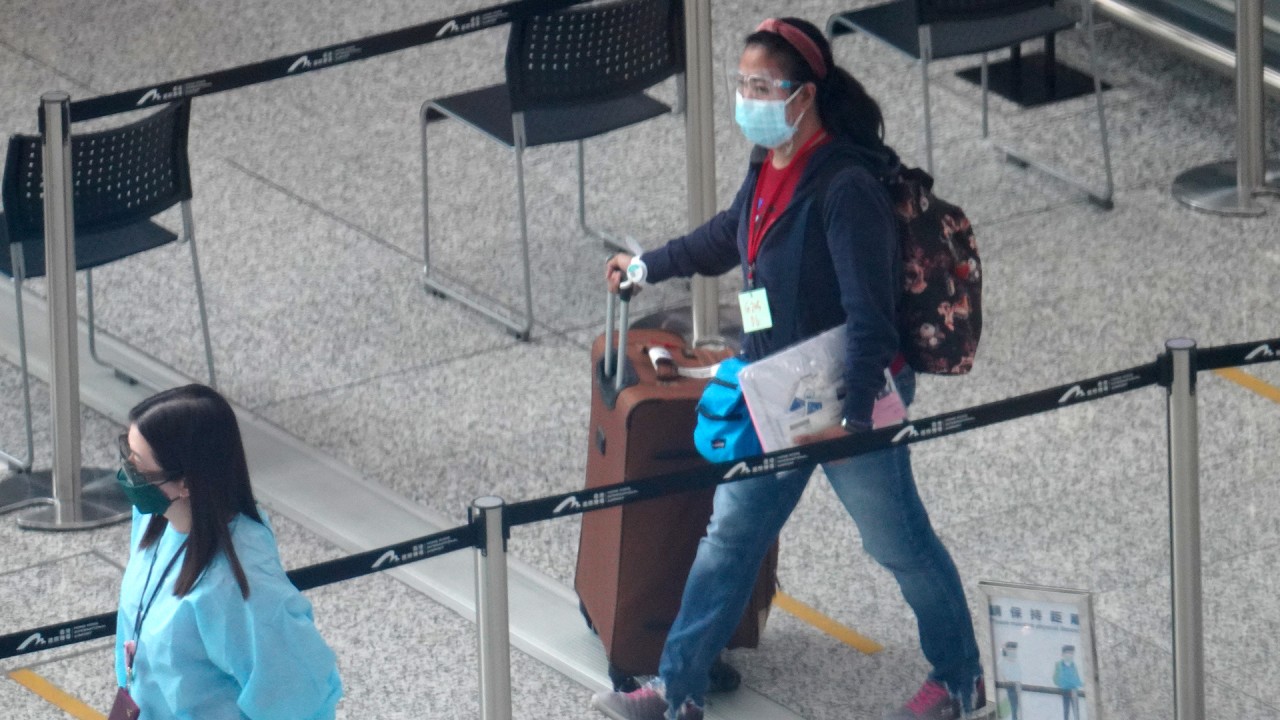
Explainer | What are Hong Kong’s quarantine rules? All the latest on coronavirus travel restrictions, from hotels to children’s vaccines and antibody tests
- City to relax its rules for arrivals, with period of isolation to shorten to as little as one week
- Departing residents can enjoy fewer days in quarantine upon return with a positive local antibody test valid for three months
This story has been made freely available as a public service to our readers. Please consider supporting SCMP’s journalism by subscribing.
Below, the Post unpacks what you need to know about the latest measures.

Who qualifies for the shortened seven-day quarantine?
To be eligible for the shortened period, travellers need to be fully vaccinated for at least 14 days, test negative for Covid-19 at the airport and positive for antibodies.
The scheme will be introduced in two phases. The first applies to Hong Kong residents, who can go to a recognised lab or private hospital to undergo an antibody screening before travelling, and present the results – which are valid for three months – upon arrival.
The arrangement could begin as early as June 30, while officials also aim to start the second phase within a month, targeting Hongkongers who are currently abroad and non-Hong Kong residents who would need to take the antibody test upon arrival and can wait for the results at a hotel.
Resuming cross-border travel high on agenda as city eases quarantine rules for fully jabbed residents, travellers
The government said the seven-day quarantine would be applicable to Hong Kong residents returning from countries in Group B, which are classified as high risk, or Group C, which are deemed medium risk under the city’s five-tier system for assessing the overseas Covid-19 threat. The arrangement also applies to non-permanent residents who live in the city on work visas.
The 29 countries in Group B include Canada, Japan, Britain, Singapore and the United States.
Medium-risk countries refer to all places outside mainland China and Macau that are not classified in any other group.
The scheme will also cover travellers from Taiwan, where fully inoculated Hongkongers currently need to undergo 14 days of quarantine upon their return to the city.
Fully vaccinated people arriving from Australia or New Zealand, which are the lowest-risk countries comprising Group D, can already take advantage of the seven-day quarantine.
What about children?
Children as young as 12 can book shots made by German-made BioNTech under the city’s vaccination programme. The other vaccine available in Hong Kong, the China-made Sinovac jab, can only be administered to people aged 18 or above.
Officials said they would continue to study the possibility of covering children who were ineligible for inoculation under the relaxed quarantine measures and make a decision later.
“This is one of the fine details that we have to examine and come to a position on,” city leader Carrie Lam Cheng Yuet-ngor said. “We will study that and come up with a response.”
Currently, unvaccinated children returning home must serve out their entire quarantine period, which runs between two and three weeks depending on where they are coming from, at a hotel, even if their parents are eligible for a reduced stay. Their guardians can choose to stay with their children for the duration of the isolation.
What about exemptions?
A new scheme has been launched allowing financial institutions to submit the names of four senior executives each month to be exempt from quarantine on arrival. The submissions would be vetted by regulators such as the Hong Kong Monetary Authority and the local stock exchange.
The government said on Monday that it would introduce serology testing as one of the requirements for quarantine exemptions for qualified people in the financial sector and listed companies.

02:09
Hong Kong to shorten mandatory quarantine to 7 days for fully vaccinated residents, travellers
How will the antibody tests be arranged? What should I do about my quarantine hotel booking?
Officials said they would soon release a list of facilities approved to provide travellers leaving Hong Kong with the antibody test.
For arrivals who do not have an antibody test conducted in Hong Kong, officials may develop plans to have blood drawn while waiting for their Covid-19 test result at the airport. Officials are currently testing three types of antibody tests involving finger pricking.
Lam said arrivals would be required to wait for their antibody test results at hotels and urged them to make arrangements more flexible for travellers who could have their quarantine period reduced.
“I would very much appeal to Hong Kong hotels that they should allow that flexibility for the passengers instead of charging them for the full 14 days. I’m pretty optimistic that we should be able to work out that facilitation arrangement,” Lam said, adding she had already asked the tourism commissioner to start negotiations with the sector.
But tourism sector lawmaker Yiu Si-wing said industry representatives had expressed concerns that establishments designated as quarantine hotels would not make up for lost income by accepting walk-in new customers.
Yiu said the sector would discuss with the government on whether public money could be used to offer compensation to hotels for the reduced stay of some travellers.
Is there a threshold for antibody levels required?
Lam sidestepped a question about this at a press conference introducing the new measures on Monday, saying instead it would be better to seek experts’ opinion.
The study raised questions about shortened quarantine periods for vaccinated travellers arriving in Hong Kong based on antibody tests.
The BioNTech vaccine has been reported to have a 95 per cent efficacy rate, while the figure for Sinovac is 50.7 per cent.
Virologist and HKU Professor Jin Dong-yan, who was not involved in the study, welcomed the move to employ the tests, but cautioned it was possible certain people who received the Sinovac jab might not return a positive antibody test.
“Those who are vaccinated [but don’t test positive for antibodies] should probably receive a third injection at some time,” he said, noting health authorities could consider offering booster shots in the future.
Immunologist Ashley St John, an associate professor at Duke-NUS Medical School in Singapore, said that antibody concentrations could correlate with protection against a virus, but they were only one important aspect to consider.
Hong Kong pair who lied to health officials undone by credit card records, CCTV
“Usually, we do interpret a high titre [high concentration] antibody response as being indicative of a ‘better’ response, but that is not always the case. There is scope for antibodies to have lower titre and still be effective in neutralising the virus,” she said, adding this would need to be evaluated on a case-by-case basis.
Antibody concentrations usually remain high for a few weeks or months after infection or vaccination and then they can decline slightly, but the created memory immune cells can ramp up antibody production later, according to St. John, who was speaking generally and not in reference to the HKU study.
Data that Sinovac researchers published in The Lancet in February suggested the immune memory potentially created by the vaccine might play a role in preventing infections, pointing to a decrease of antibody response after natural infections with several coronaviruses, but only “rare” reports of reinfections.
Additional reporting by Simone McCarthy


